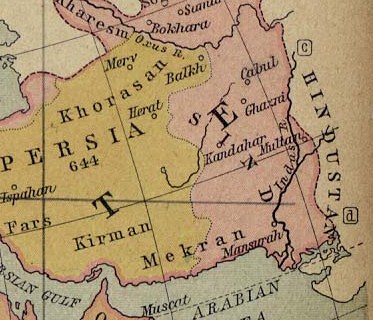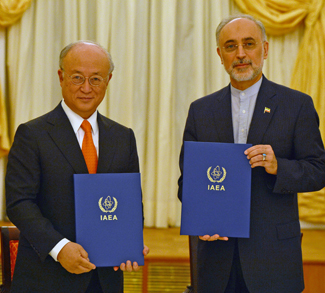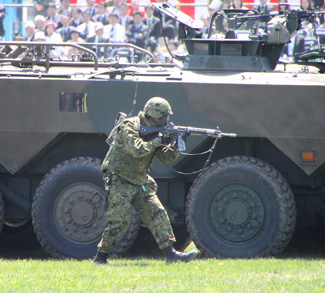The Khorasan terror group was recently the center of a media circus. And although the terrorist organization demands the counter-terrorism community’s attention, it does not represent a clear and immediate danger to the United States. Moreover, diplomatic observers suggest that a US-Iranian rapprochement is under way, and that Khorasan could play a role in negotiations.
The word “Khorasan” refers to a historic region around modern Afghanistan, extending into Iran, Turkmenistan, Tajikistan, and Uzbekistan. In short, it was once an important part of the pre-Ottoman Islamic caliphate, and now a new militant group has tapped into this historical vein, ostensibly seeking a return to its former glory.
Recent American airstrikes in Syria, though mostly aimed at disempowering Islamic State, are also targeting Khorasan. According to intelligence reports, in late September 2014 a Pentagon spokesman indicated that Khorasan was “in the final stages of plans to execute a major attack.” Other classified reports found that the group was working with Al Qaeda in the Arabian Peninsula (AQAP) to “test new ways to slip explosives past airport security.” In light of these reports, an American military response seemed almost inevitable.
While Khorasan is clearly a threat to US interests and personnel in the region, the reason behind the recent publicity blitz is perhaps recent American detente with Iran, and a gesture towards the conservative voices accusing the administration of consistently being wrong on Iran.
Furthermore, until now, Al Qaeda’s network in Iran has facilitated the transfer of funds from Gulf-based donors to Al Qaeda and other affiliated groups, including the Al Nusra Front (Khorasan is allegedly a Nusra ally in the region) in Syria. To counter this negative image, Iranian President Hassan Rouhani recently offered to help the West in its war on terrorism—and play a more “active role” in the Middle East. In line with this new approach, the Iranian administration might be playing a clever game: cutting off support for Khorasan, in a period when traditional US allies in the region seem in dire straits, shows that Iranians are taking a hard line against terrorism. The fact that traditional US allies in region are indecisive is proved by recent comments made by Vice President Joe Biden regarding Turkey’s border, which came at a perfect time for the Iranians since it highlighted the US need for regional facilitators (even of convenience) against Islamic State. Turkey had failed to close its long border with Syria, allowing IS militants to easily cross the border while Saudi Arabia and the UAE transferred millions of dollars and large amounts of weaponry to a variety of Islamist militias inside Syria. The caveat: the West must be willing to do it Iran’s way, as well as settle outstanding nuclear issues. On the battlefield, it seems that the United States is already cooperating with Iran. In the case of the Kurdish town of Amerli, the US-backed operation was spearheaded by Asaib Ahl al-Haq, an Iranian-backed group known for sectarian violence against Sunnis and attacks on American troops during the last war in Iraq. Moreover, the Iranian position shows that its leaders believe they are in a position of strength given the fact that Washington’s traditional allies in the region seem unable to deliver.
The potential call to Rouhani from Obama to defeat Islamic State will only serve to strengthen Iran’s position, and make it even more difficult to hold Iranian leaders to meeting the obligations they accepted in Geneva. IS and Khorasan are perhaps an opportunity for the United States to “reset” its working relationship with Iran and the region.
The opinions, beliefs, and viewpoints expressed by the authors are theirs alone and don’t reflect any official position of Geopoliticalmonitor.com.




